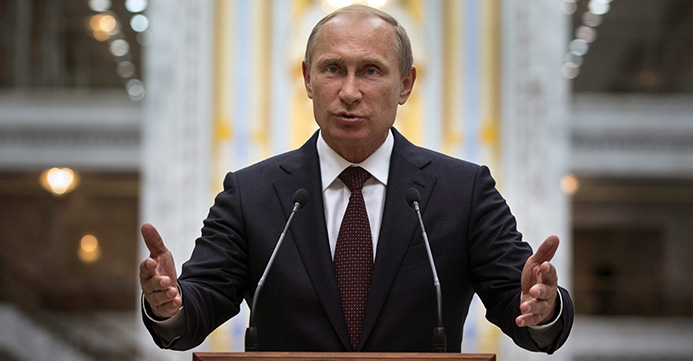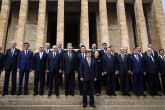In the opening sentence of “The Tale of Two Cities,” Charles Dickens wrote, “it was the best of times, it was the worst of times…” This sentence describes the situation of Eastern and Central Europe better than anything else nowadays. It is one of the best times for the countries of this region, because since their emergence as nation states for the first time, they are officially part of the economic and political union of Europe as independent entities. On top of that, many these states are a member of a formalized and institutionalized security and military alliance of the Western world. However, the same countries are also facing hard times due to the geopolitical environment, as Russia is flexing its military muscle and began demonstrating its aggressive stance against Ukraine. Since the beginning of the crisis, the state of Ukraine lost Crimea, and is now under the threat of losing more Eastern territories to the pro-Russian groups that have been supported and sponsored by Russia.
Despite the imminent danger that Central and Eastern European nations have felt since the beginning of the crisis in Ukraine, they do not look like they have been prepared for these moments and a potential crisis with Russia. Most of these countries have a long history of disputes with and even occupation by Russia, and in some of these nations, previous interventions by Moscow constituted a traumatic moment in their collective memories. With the crisis in Ukraine, most of these memories resurfaced, and rethinking in regards to security emerged in the public sphere. Because of that, historical analogies are dominating to the tone of most of these debates. Although the political context is much more different now, as these states are part of EU and NATO, the states of Central and Eastern Europe are still experiencing increasing insecurity and vulnerability.
According to many in these countries, the European Union – which most of these states are part of – now have been given mixed signals for these states. Although as a union, the EU strongly opposed and criticized the Russian action in the region and the attack to the sovereignty and territorial integrity of Ukraine, some of the individual member states are exhibiting contradictory policies when their own interests are at stake. For instance, these nations are extremely disturbed by the French decision to sell new amphibious assault ships to Russia in the midst of such a security crisis. More significantly, the ambivalent relations between Germany and Russia and increasing economic ties create concerns and question marks for the Eastern and Central European states. In addition, the declining level of coordination between Germany and Poland in regards to the Ukrainian crisis is making Poles feel diplomatically excluded from the process of conflict management in the region. Moreover, the reaction of the United Kingdom to the Ukrainian crisis, which is one of the states that guaranteed the territorial integrity and security of Ukraine during the Budapest Memorandum, was also considered largely insufficient. Although the divergence of opinions and positions can be explained as a result of the lack of a framework of common foreign and security policy of the EU, the lack of sensitivity to the concerns of its partners in a political union upsets the nations in this region. Unintentionally the first thing that comes to the mind of Central and Eastern Europeans become the invasion of Danzig by the Germans at the onset of the Second World War and the indifference that Europeans exhibited during this period. Recently, Polish intellectuals drafted an open letter to European powers reminding them of their “selfish and short-sighted policy towards an aggressor,” which was symbolized by the statement of “Why Die for Danzig?”
Under these circumstances, the main question in the Central and Eastern European nations is about the U.S. policy in regards to potential Russian aggression. These nations are aware that in the case of a military or paramilitary involvemen



